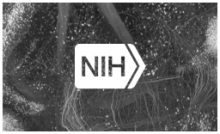
Separate events on Wednesday, October 1 highlighted the awardees of the second round of NIH BRAIN Initiative grants and additional investments by the Kavli Foundation to support the BRAIN Initiative. NIH announced funding of 67 new projects to advance our understanding of neural circuit function and greatly enhance our ability to record from the brain in action.
Understanding the language of the brain is essential to understanding and treating the circuit dysfunction that underlies neurological, mental health and substance abuse disorders. To learn more, attend a satellite event on the BRAIN Initiative being held at the Society for Neuroscience Annual Meeting in Chicago, IL this month. There, NIH is partnering with the Kavli Foundation to host a town hall meeting and reception at 6:30pm on Tuesday, October 20 at the McCormick Place Convention Center. Representatives from all of the BRAIN partners, including federal agencies, private research efforts, and universities will be present. We encourage you to submit questions about the BRAIN Initiative to be asked during the Q&A session of the satellite event using this website.
Approximately $38 million in federal grants will support the newly announced research projects of more than 130 investigators from over 25 states and eight countries. These exciting projects add to the initial 58 awards announced in the fall of 2014, bringing the grand total of NIH investment in the BRAIN Initiative to nearly $85 million.
The projects focus on many of the fundamental milestones of BRAIN 2025: A Scientific Vision, including:
- Classifying the myriad cell types in the brain
- Producing tools and techniques for analyzing brain cells and circuits
- Creating next-generation human brain imaging technology
- Developing methods for large-scale recordings of brain activity
- Integrating experiments with theories and models to understand the functions of specific brain circuits
- Developing short courses about the use of cutting edge neuroscience tools and the analysis of the enormous, complex data sets that many research labs are now collecting
The newly funded investigators, as well as those funded by last year’s awards, will gather in Bethesda, MD in early December for the second annual BRAIN Initiative Investigators Meeting to share their research ideas and identify areas of potential collaboration and synergy.
As in FY14, the National Science Foundation (NSF), the U.S. Food and Drug Administration (FDA), the Defense Advanced Research Projects Agency (DARPA), and the Intelligence Advanced Research Projects Activity (IARPA) continue to support the BRAIN Initiative. These federal agencies and the investigators funded through them will also participate in the December meeting.
Additionally, private and university partners announced funding commitments to enable research aimed at deepening the understanding of the brain and brain-related disorders at a briefing on Capitol Hill. The Kavli Foundation will provide over $100 million to generate new neuroscience institutes at three universities: Johns Hopkins University (Baltimore, MD), The Rockefeller University (New York, NY), and the University of California, San Francisco (San Francisco, CA). These interdisciplinary institutes will support work directly related to the BRAIN Initiative and will partner with federal and non-federal research organizations to create novel technologies for visualizing the brain at work.
More information about the exciting growth of the BRAIN Initiative can be found in NIH’s official press release.
The NIH BRAIN Initiative is managed by the 10 Institutes and Centers whose missions and current research portfolios complement the goals of the BRAIN Initiative: NCCIH, NEI, NIA, NIAAA, NIBIB, NICHD, NIDA, NIDCD, NIMH, and NINDS. These 10 Institute and Centers will be directly contributing funds to a common pool for the support of BRAIN research.
